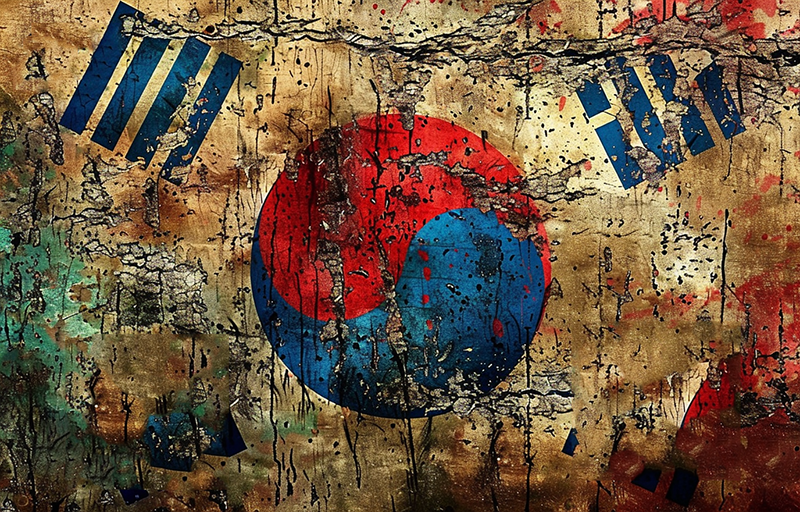Establishment of the South Korean Constitution
The Constitution of the Republic of Korea was enacted on July 17, 1948.
It is an important legal framework that declares that the Republic of Korea is a democratic republic and defines the basic rights and duties of the people, the composition of the government, and the principles of its operation.
The idea behind the Constitution was to lay the foundation for Korea to become an independent and democratic nation after emerging from Japanese colonization.
The Role of the Constitution
The Constitution contains the governing ideology of a country and mandates that all state powers, including legislative, executive, and judicial, must be exercised based on the Constitution.
Constitutions serve to protect the fundamental rights of the people and limit the powers of the government so that democracy and the rule of law can function properly.
They provide an important institutional framework for the people to run the country as sovereigns.
Historical Background of the Constitution
The Constitution Day commemorates the promulgation of the Constitution of the Republic of Korea on July 17, 1948. The day was chosen to fall on the same day as the founding day of the Joseon Dynasty, July 17th of the lunar calendar, signaling the beginning of a new democratic nation while maintaining continuity with the past. After Korea’s liberation in 1945, the country was under American military rule, and on May 31, 1948, the Constituent Assembly was held, which led to the creation of the Constitution after nearly two months of debate.
Japanese invasion and South Korea’s legal history
Japanese occupation and usurpation of sovereignty
In 1910, the Japanese Empire forcibly annexed the Korean Empire and colonized the Korean Peninsula. This resulted in the complete loss of Korean sovereignty, and Korea was subjected to Japanese colonial rule.
During the Japanese occupation, Japan reorganized Korean laws and institutions to suit its own rule, and the Korean people suffered greatly under Japanese law and governance.
Japanese Legal Coercion and Rule
During the Japanese occupation, Japan reorganized Korea’s legal system to suit its own interests. The traditional Korean legal system and culture were suppressed, and Japanese law and order was forcibly introduced.
This brought many disadvantages and suffering to the Korean people. The Japanese tightly managed and controlled the Korean political, economic, and social systems to subordinate them to Japan.
Liberation and the need for a new constitution
In 1945, with the defeat of Japan in World War II, Korea was liberated. However, even after liberation, Korea experienced political turmoil, with both North and South Korea being placed under trusteeship by the United States and the Soviet Union, respectively.
A new constitution was needed to establish the country as an independent nation.
Constitutionalization and the end of trusteeship
On July 17, 1948, the Constitution of the Republic of Korea was enacted and promulgated, an important event that marked the end of Japan’s colonial rule and the foundation of Korea as an independent democratic republic.
The enactment of the constitution allowed South Korea to establish a new state system based on the rule of law and democracy. It also marked the end of trusteeship and the official establishment of the South Korean government, putting the country on the path to full sovereignty.
Although Japanese colonial rule brought many sufferings and trials to Korea, the enactment of the Korean Constitution in 1948 marked a major turning point in the country’s path to becoming an independent democratic republic.
With the Constitution, South Korea established a state system based on the rule of law and democracy, which remains an important foundation of South Korean society to this day.
National Constitution Day Celebrations
Various celebrations are held on Constitution Day. Official ceremonies are conducted at the National Assembly, where key national figures give speeches to recall the meaning of the Constitution and honor its spirit. People also fly the national flag and read the preamble to the Constitution to remind themselves of its importance.
Controversy Over the Exclusion of Public Holidays from Constitution Day
Initially, Constitution Day was a public holiday, but in 2008, it was removed from the list of public holidays due to concerns about decreased productivity caused by the number of public holidays after the introduction of the 40-hour workweek. However, there is a growing public opinion to make Constitution Day a public holiday again. Recently, a bill was introduced to reinstate Constitution Day as a public holiday, which has received high approval rates.
The Evolution of the Constitution and the Development of Democracy
The Constitution of the Republic of Korea has been amended several times since its enactment. In particular, the 1987 constitutional amendment was a significant turning point for democratization, as it introduced the direct presidential system and strengthened the fundamental rights of the people.
The current constitution focuses on guaranteeing the fundamental rights of the people and establishing the principles of democracy and the rule of law.
Laying the Foundation for Democracy and the Rule of Law
Constitution Day marks the foundation of the Republic of Korea as a democracy governed by the rule of law.
It is important to celebrate this day to remind ourselves of the Constitution’s importance and how it guarantees freedom and equality for all citizens.
On this day, it is crucial to fly the Korean flag and reflect on the values of the Constitution.
Constitution Day commemorates the beginning of democracy and the rule of law in Korea, and it is essential for all Koreans to recognize the Constitution’s significance and practice its principles.
This recognition and practice will contribute to the further development of democracy and the rule of law in Korea.

